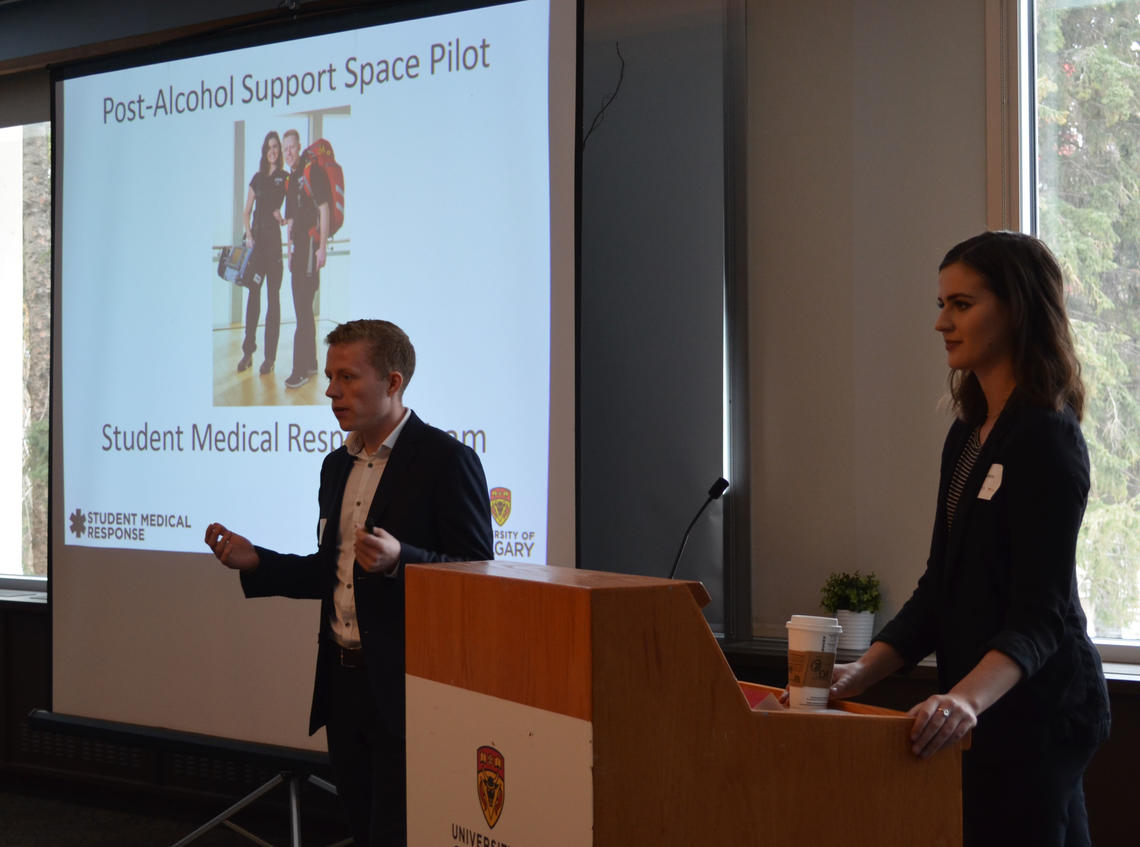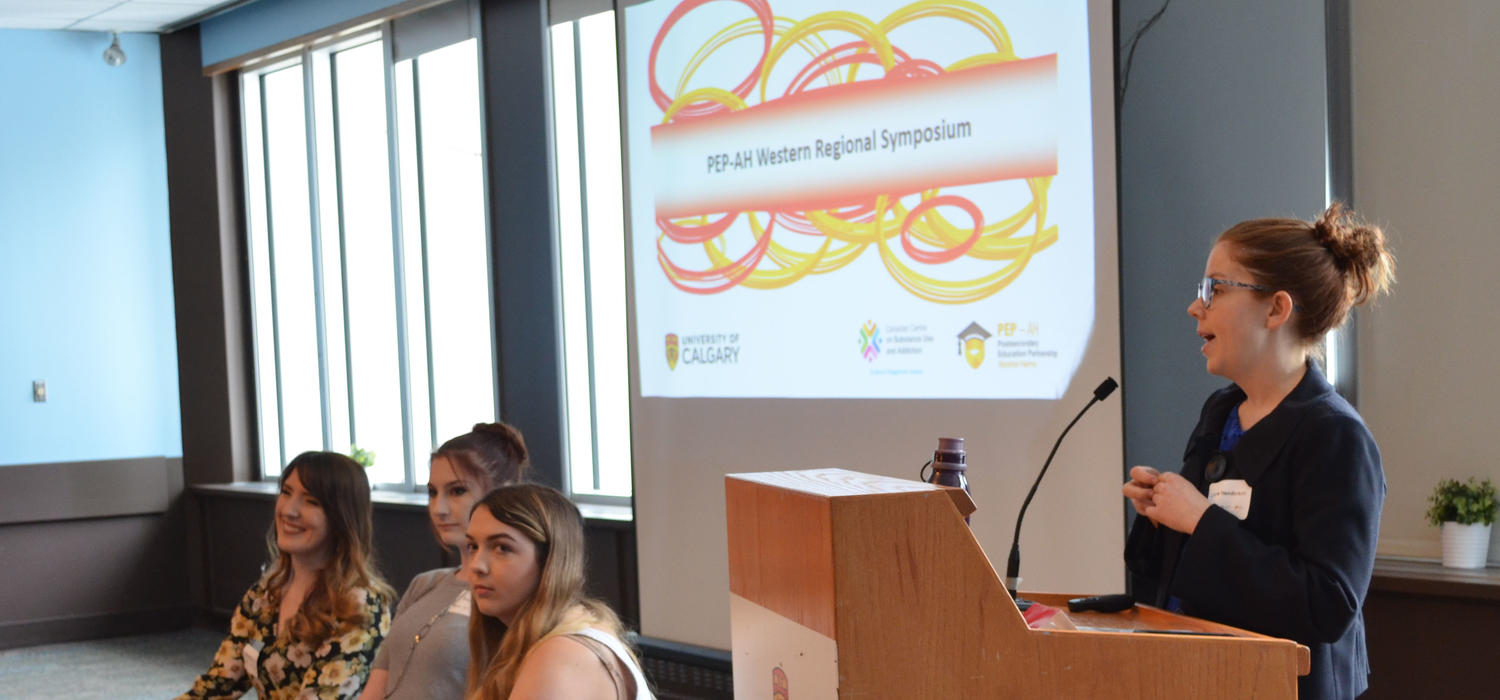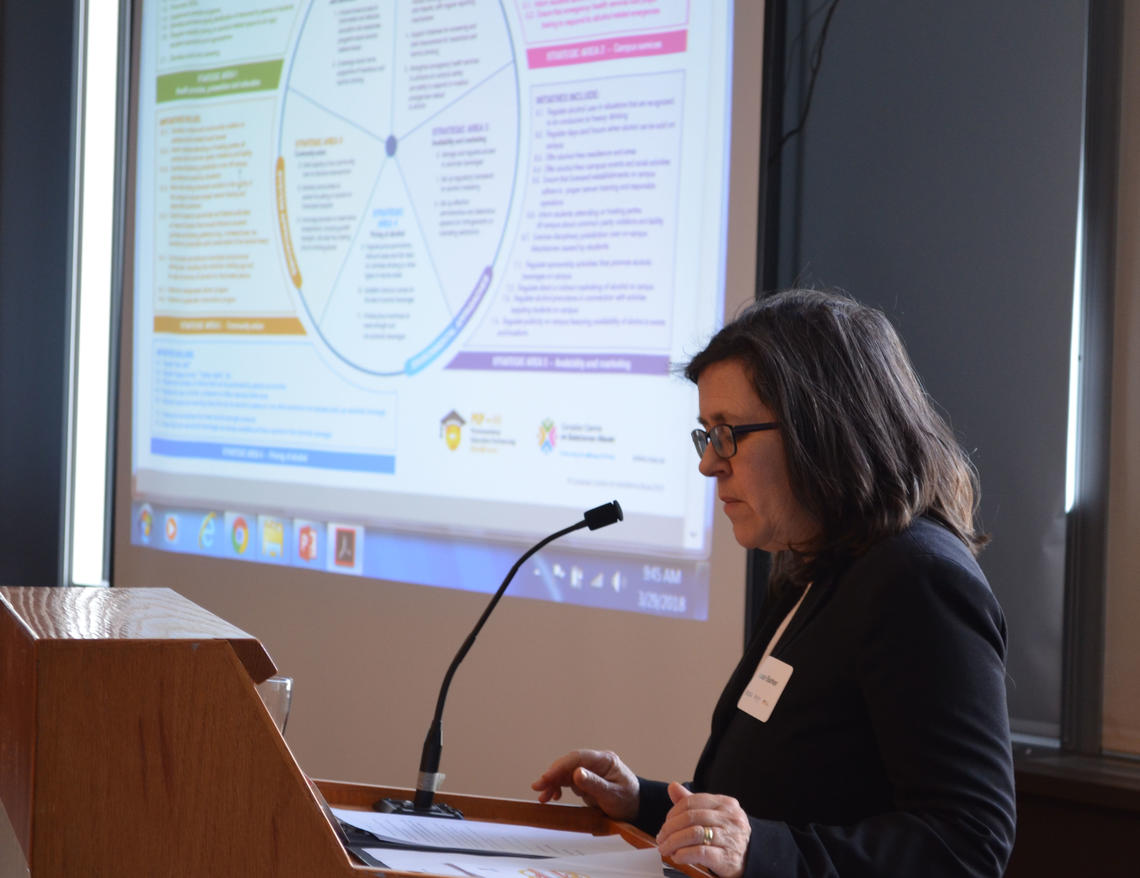
Kyle Guild and Renee Nutini of the Student Medical Response team.
Chenwei Lian, University of Calgary
April 10, 2018

Initiatives to reduce alcohol harm on campus are more successful when students are involved. But what are the best ways to engage students in these initiatives? That’s one of the key questions examined at the Post-Secondary Education Partnership – Alcohol Harms (PEP-AH) western regional symposium, hosted at the University of Calgary last week.
PEP-AH is a partnership between the Canadian Centre on Substance Use and Addiction and universities and colleges across Canada. Post-secondary institutions in the PEP-AH network are working toward implementing evidence-based practices to reduce alcohol harms.
Debbie Bruckner, senior director, Student Wellness, Access and Support says student involvement is critical in promoting harm reduction on campus. “Students are key influencers in changing culture. Student-to-student work is very impactful; it raises dialogue to a more relational level, normalizing help-seeking and setting the tone to influence cultural change,” she says.

Kyle Guild and Renee Nutini of the Student Medical Response team.
Chenwei Lian, University of Calgary
Student leadership shown to reduce alcohol harms
Presenters from Toronto, University of Victoria, Mount Royal University and University of Calgary spoke to the 60 attendees about their research or experience reducing alcohol harms on campuses.
John Cunningham, from the Centre for Addictions and Mental Health in Toronto, discussed how two online tools, Check Your Drinking and Alcohol Help Centre, were shown to help decrease drinking in post-secondary students over time. Cunningham shared the importance of meeting students where they are, including personalized interventions and understanding student issues during peak times in the academic year.
Two presenters from the University of Victoria, Tim Dyck and Catriona Remocker, Canadian Institute of Substance Use Research, shared ways on how open dialogue and student influencers can change attitudes toward alcohol and shape health behaviours on campuses. Dyck and Remocker also discussed how students respond better to conversations initiated by their peers than attempts to influence them with dramatic stories.
Laura Henderson, health promotion specialist at Mount Royal University, presented on student-led alcohol harm reduction initiatives with student volunteers Madeleine McCracken, Shayla Breen and Samantha Beck of the Peer to Peer Mental Health Educators team. The peer supporters initiate conversations with other students about alcohol use at orientation and other events. Informal settings for these discussions, sometimes interactive games like giant flip-cup, help normalize help-seeking behaviours and demonstrate fun alternatives to alcohol.

Susan Barker, vice-provost (student experience).
Alcohol harm reduction at UCalgary
One harm reduction program at the University of Calgary is the Post-Alcohol Support Space (PASS). Opened in January, the PASS is a medically supervised and judgment-free space on campus where UCalgary members can sleep off the effects of alcohol. Anyone who uses the PASS can do so without fear of consequences, academic or otherwise. The PASS can be accessed by escort from Student Medical Response (SMR) or Safewalk by calling 403-220-5333.
Kyle Guild and Renee Nutini of the SMR team spoke about the PASS at the symposium. The SMR team is a group of 30 student volunteers with a variety of backgrounds such as first responders, paramedics, firefighters, and nursing and medical students who provide pre-hospital emergency medical care during many UCalgary events. The SMR team was instrumental in developing the PASS pilot project to be a supportive, non-judgmental and consequence-free service on campus.
The PASS was developed with PEP-AH’s key principle in mind — that student involvement is key to the success of initiatives to reduce alcohol harms.
Renee Nutini of the SMR has found the peer-to-peer relationship between student medical responders and students in need of medical attention increases trust and openness between first responder and patient.
“Student-led harm reduction efforts are more effective because, as current students in the same university community, we genuinely understand the challenges that one another are going through. At the end of the day, we are simply peers looking out for one another,” Nutini explained.
The PASS initiative was developed with input from Risk, Student Experience, Campus Security, Residence Services, the SU Wellness Centre, and the SMR.